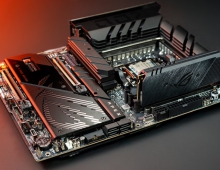
Microsoft's Project Olympus Hardware Design Powered by the AMD EPYC Processor Now Deployed in Azure
Microsoft Azure has deployed AMD EPYC processors in its datacenters in advance of preview for its latest L-Series of Virtual Machines (VM) for storage optimized workloads.
The Lv2-Series instances run on the AMD EPYC 7551 processor, featuring a base core frequency of 2.2 GHz and a maximum single-core turbo frequency of 3.0 GHz. With support for 128 lanes of PCIe connections per processor, AMD provides over 33 percent more connectivity than available two-socket solutions to address a high number of NVMe drives directly. The rival Intel Scalable Processor supports a maximum of 48 lanes of PCIe Gen 3 per CPU and 20 lanes in the I/O chip. (max of 68 lanes on 1 socket and 96 lanes on 2 socket) on all CPU's.
The Lv2 VMs will be available starting at eight and ranging to 64 vCPU sizes, with the largest size featuring direct access to 4TB of memory. These sizes will support Azure storage disks by default and will also support accelerated networking capabilities.
If you’re interested in being one of the first to try out these new sizes as part of the preview for Lv2 VMs.
| Size | vCPU’s | Memory (GiB) | Local SSD (GiB) |
| L8s | 8 | 64 | 1 x 1.9TB |
| L16s | 16 | 128 | 2 x 1.9TB |
| L32s | 32 | 256 | 4 x 1.9TB |
| L64s | 64 | 512 | 8 x 1.9TB |
The Lv2-Series instances are based on Microsoft's Project Olympus design, first introduced just over a year ago as Microsoft's next generation hyperscale cloud hardware design. This design serves as a new model for open source hardware development with the Open Compute Project community.





















